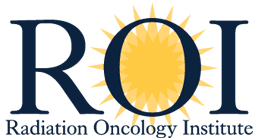Malcolm Mattes, MD
Radiation Oncology Exposure and Mentorship for Underrepresented Minority Medical Students

Malcolm Mattes, MD, of the Rutgers Cancer Institute of New Jersey is aiming to develop a more diverse workforce in radiation oncology. Currently, underrepresented minority physicians make up only 7% of the radiation oncology workforce compared to 16% of medical school graduates and 30% of the U.S. population. Increasing physician workforce diversity has been identified as a means to improve health equity. Dr. Mattes and his collaborators are seeking to address this disparity in the radiation oncology workforce because it is critical to ensuring that patients from current minority groups have access to the best care possible now, and in the future, when it is projected that they will collectively make up the majority of the U.S. population.
Dr. Mattes’ team is focusing on increasing exposure to radiation oncology early on in medical school and translating that exposure into mentorship and career development opportunities. This is being carried out with a multifaceted approach that includes:
- Collecting data from U.S. radiation oncology residency programs on the extent of their outreach to diverse medical student groups.
- Offering didactics in radiation oncology to medical student organizations such as oncology interest groups, the Student National Medical Association and the Latino Medical Student Association, as well as premedical pipeline programs for students historically underrepresented in medicine.
- Presenting a virtual oncology series for medical students featuring discussions with radiation oncology attendings, residents and residency applicants on topics relevant to students as they explore a clinical or research career in a cancer-oriented specialty.
- Supporting radiation oncologists in local outreach to student groups, for instance by sharing teaching materials.
- Providing mentorship and research opportunities to students interested in learning more about radiation oncology.
- Promoting development of radiation oncology department diversity, equity and inclusion committees to help support students locally.
Travel awards of up to $1,000 are also available to students who are underrepresented in medicine, and interested in pursuing an away rotation in radiation oncology, or research projects that require travel to an outside institution. Interested students can contact Dr. Mattes by email to learn more and apply for this opportunity.
Dr. Mattes’ collaborators on the project include nationally recognized experts on developing underrepresented physicians, Curtiland Deville, MD, and Charles R. Thomas, Jr., MD, FASTRO. Together they are committed to creating a foundation for an enduring and wide-reaching educational structure to improve diversity in the radiation oncology workforce.
Publications
- Pilot Study Exploring the Feasibility of Incorporating Radiation Oncology into Preexisting Early Pathway Programs for Diverse Premedical Students was published online in the International Journal of Radiation Oncology•Biology•Physics on January 22, 2023.
- Impact of a Virtual Introduction to Radiation Oncology Presentation on Stimulating Interest in the Specialty Among Diverse Medical Students at Multiple Institutions was published online in the Journal of the American College of Radiology on December 9, 2022.
- The Current State of Departmental Diversity, Equity, and Inclusion Efforts Within US Academic Radiation Oncology Departments was published online in the International Journal of Radiation Oncology•Biology•Physics on October 25, 2022.
- A Survey to Assess and Delineate Approaches to Medical Student Outreach to Promote Diversity at Academic Radiation Oncology Programs was published online in the International Journal of Radiation Oncology•Biology•Physics on January 7, 2021.
Presentations
- A Comprehensive Overview of Academic Radiation Oncology Departmental Efforts in Diversity, Equity, and Inclusion was presented at the 2022 ASTRO Annual Meeting.
- Assessing the Impact of Diverse Approaches of Promoting Virtual Radiation Oncology Educational Content to Medical Students was presented at the 2022 ASTRO Annual Meeting.
- Impact of a Virtual Introduction to Radiation Oncology Lecture on Stimulating Specialty Interest among Diverse Medical Students at Multiple Institutions was presented at the 2022 ASTRO Annual Meeting.
- Pilot Study Exploring the Feasibility and Value of Introducing Diverse Students in Premedical Programs to Multidisciplinary Oncology was presented at the 2022 ASTRO Annual Meeting.
- Approaches to Medical Student Outreach at Academic Radiation Oncology Programs was presented at the 2021 ASTRO Annual Meeting.














